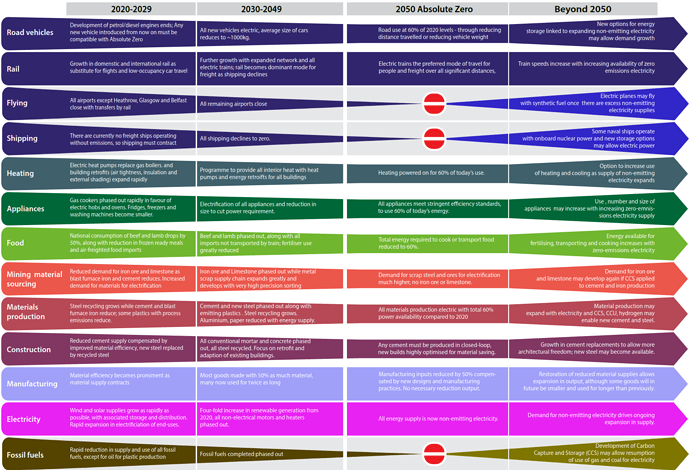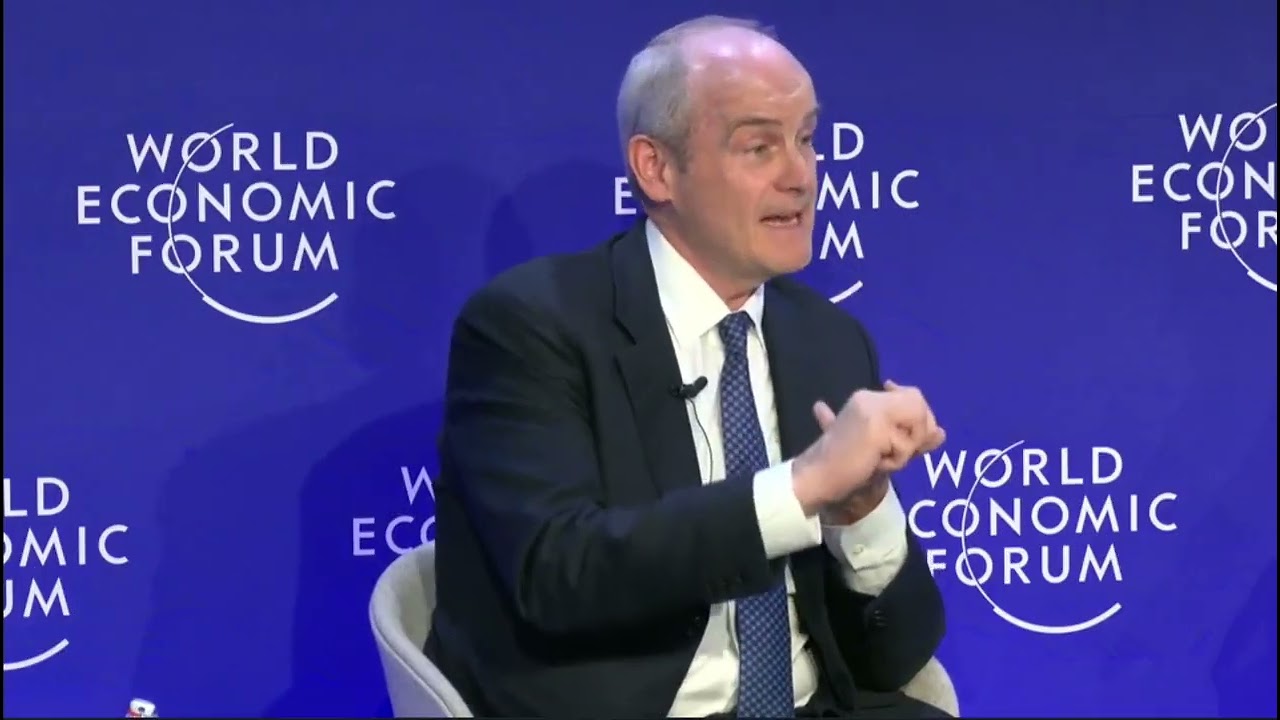The image above (click to enlarge) is from a report titled “Absolute Zero” [PDF, 31 pages], issued in November 2019 by UK Fires, a collaboration between the universities of Cambridge, Oxford, Nottingham, Bath and Imperial College London, funded by the UK Engineering and Physical Sciences Research Council.
The report’s executive summary begins with:
We can’t wait for breakthrough technologies to deliver net-zero emissions by 2050. Instead, we can plan to respond to climate change using today’s technologies with incremental change. This will reveal many opportunities for growth but requires a public discussion about future lifestyles.
We have to cut our greenhouse gas emissions to zero by 2050: that’s what climate scientists tell us, it’s what social protesters are asking for and it’s now the law in the UK. But we aren’t on track. For twenty years we’ve been trying to solve the problem with new or breakthrough technologies that supply energy and allow industry to keep growing, so we don’t have to change our lifestyles. But although some exciting new technology options are being developed, it will take a long time to deploy them, and they won’t be operating at scale within thirty years.
Continuing into specifics:
The two big challenges we face with an all electric future are flying and shipping. Although there are lots of new ideas about electric planes, they won’t be operating at commercial scales within 30 years, so zero emissions means that for some period, we’ll all stop using aeroplanes. Shipping is more challenging: although there are a few military ships run by nuclear reactors, we currently don’t have any large electric merchant ships, but we depend strongly on shipping for imported food and goods.
In addition, obeying the law of our Climate Change Act requires that we stop doing anything that causes emissions regardless of its energy source. This requires that we stop eating beef and lamb - ruminants who release methane as they digest grass - and already many people have started to switch to more vegetarian diets. However the most difficult problem is cement: making cement releases emissions regardless of how it’s powered, there are currently no alternative options available at scale, and we don’t know how to install new renewables or make new energy efficient buildings without it.
The big chart at the top summarises the detailed analyses in the body of the report. So, serf, what does your life look like in 2050?
- No air travel
- No beef or lamb
- No concrete
- No international ocean freight shipping
- Small electric cars only
- No new roads
- No oil or gas fired heating or hot water
- Colder rooms in winter
- Border controls / tariffs based on emissions
- More manure, less fertiliser in agriculture
- Tripled electricity production, mostly from bird choppers
Does this sound appealing? This is the conclusion of what is required to adopt what is the official, enacted policy of the United Kingdom, adopted by its “Conservative” government and parliament.
And how will this new style of life be enforced upon the populace? Let’s listen to J. Michael Evans, president of Red Chinese technology company Alibaba Group (and 20 year Goldman Sachs veteran), speaking on 2022-05-24 at the recent Slaver Festival in Davos, Switzerland. Note that’s all “consumers…they…they…they” and not “people…we…we…we”. This is for the serfs, not the lords.



